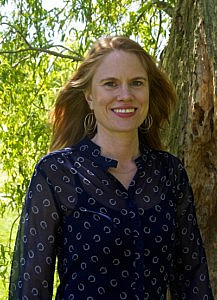Help is on hand, and it's OK to take it
'I should be able to do it on my own.' As professional organisers we hear this, or a much harsher variation, on a regular basis as we work with people to transform their spaces. Claire de Boursac, psychotherapist and professional organiser at The Art of Clearing, examines our self-critical voices and discusses some ways to dispel them in this helpful and sensitive guest post.
Is self-criticism stopping you?
It always saddens me to hear people speak unkindly to themselves, often reflecting impossibly high expectations which usually don't take into account the reality of their lives. It's something I also hear a lot in my work as a psychotherapist, where clients feel they should be able to face challenges alone. Why? Humans are social beings. We live in community, we're programmed to work together and support each other. We each have our unique skills and ways of being in the world. I don't believe anyone masters every area of their life - and more importantly, I don't think they need to. It's a responsible and courageous thing to know our strengths and our weaknesses and to enlist support where we need it. There is no shame in asking for help. Although these self-criticisms are as varied as the people who live with them, there are some common threads. I hear clients make their clutter a character flaw, as if it is central to their personality. They might call themselves 'messy'. No, the space is messy. You are human. I also often work with people who tell themselves they are 'lazy' because they haven't tidied or haven't unpacked those boxes from the move several years ago. I then discover they have very full lives, investing huge amounts of time and energy in work or family and quite rightly choose to spend their weekends resting and enjoying hard-earned time off.
The organisation myth
There is a myth that it is easy to be organised and to keep a tidy home. It may be for some people. But there are many more for whom it is challenging. There may be a number of reasons for this: physical or mental challenges or an emotional element to the items to be managed. 'Stuff' is often more than just 'stuff.' Objects can come into our lives through choice, gift and obligation. It can be complicated and emotionally charged to deal with them. That vase you hate but was given by a friend you love, the belongings of a loved one who has died, an object or clothes that are past their usefulness but are so deeply connected to a joyous time in your life that saying goodbye to them feels like saying goodbye to those delicious memories. Sometimes there is simply so much stuff that the thought of decluttering is overwhelming, seemingly impossible to know where to start.Recognising your own critical voice
Whatever someone's particular challenge is, there are doubtless hundreds, if not thousands of people thinking the same unkind thoughts and criticising themselves and their homes. A nasty inner critic is incredibly common, so much so that most people think it's just part of them, something they need to put up with. I disagree. You might recognise your own critical voice by its harsh tone. We typically speak to ourselves in a manner that we would never speak to someone else. What do you say to yourself from that place? Would you speak to your friend or loved one in that tone, with those words? The critical voice usually attacks us in an area we are already tender about, in this case our clutter or keeping our home a particular way. Because of this vulnerable quality, it can be helpful to ask ourselves 'Would you speak to a child in that way?' The answer is inevitably 'No.' We might then ask, if a child you care about was facing the feelings you're dealing with right now - embarrassment, fear, overwhelm, whatever it is - how would you respond to them? I'm guessing with something like compassion, understanding, reassurance. You deserve the same.
The role of the professional organiser
Although I suspect it may be true for my fellow declutterers, I can only speak for myself. I have never felt critical of a client for how their home is. In truth, I am actually not so interested in the physical appearance of the home and whether it is tidy or messy. What matters to me is how my client is impacted by living there and how near or far it is from their wishes for the space. I see my role as being a skilled and supportive guide along that path and it matters not a jot to me what that path is - be it reorganising a tidy house or creating order from utter chaos. I said I'm saddened when I hear the harsh self-criticism of my clearing clients and I am, but I am saddened even more by the realisation that there are probably clients I work alongside who have that critical voice running wild but don't share it with me, and therefore don't give me the chance to challenge it with them, and that there are doubtless many more people for whom the strength of this voice stops them even booking a session. If that is you, please know that it is absolutely OK that you want some support with this. You don't have to do it alone. Now take a deep breath and drop me or one of my APDO colleagues a line. We'd be delighted to help you.If Claire's post has encouraged you to seek guidance from a professional organiser, you can find your nearest APDO member here.
